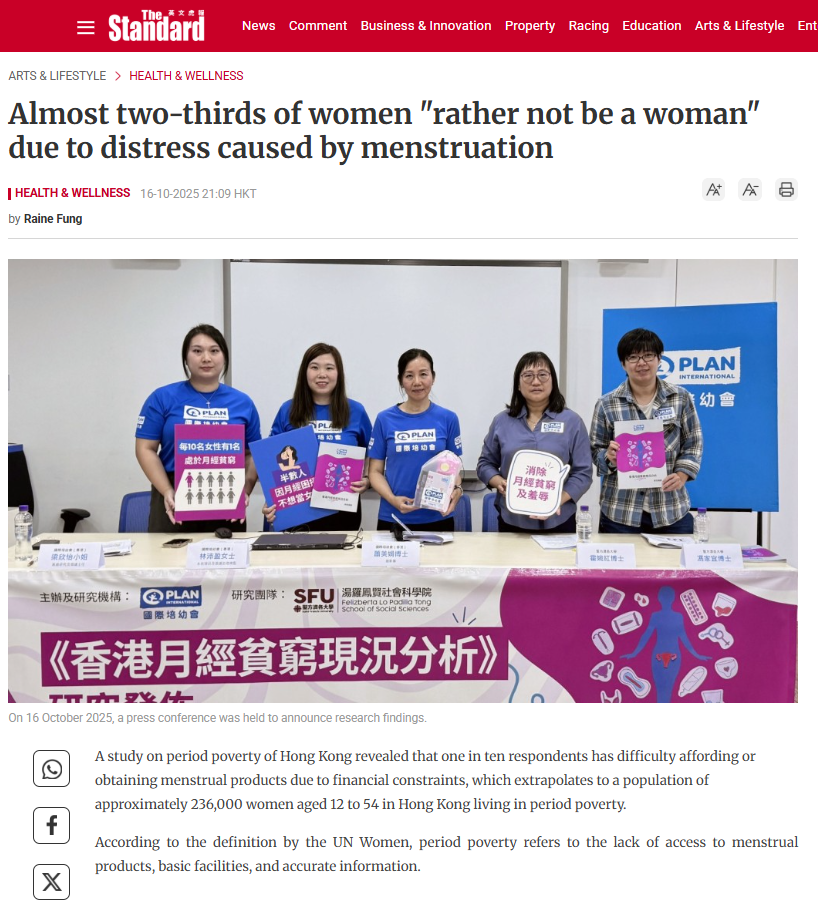Dr Doris FOK and Dr Ka Yi FUNG, Assistant Professors at the Felizberta Lo Padilla Tong School of Social Sciences, SFU, noted that while the Family Planning Association of Hong Kong recommends changing sanitary pads at least six times daily, the survey found about one-quarter of respondents changed theirs only three times daily—far below the recommended standard. Some respondents resorted to frequent bathroom visits or adding tissues to pads to reduce changing frequency, increasing infection risks.
A frequent scenario of period shaming is also observed. Nearly two-thirds of respondents reported hearing or experiencing negative comments or jokes about menstruation. About one-quarter of women expressed embarrassment or shame regarding their periods, with the rate reaching one-third among those under 18, indicating greater pressure on younger generations. Nearly half of respondents viewed menstruation as a nuisance, with some even stating they "would rather not be female."
The research team recommends incorporating menstrual product expenses into poverty alleviation policies; installing free or reasonably priced menstrual product dispensers in public spaces; enhancing publicity for menstrual health assessments and counseling services at "The Women Wellness Satellites"; integrating menstrual health education into regular primary and secondary school curricula; and incorporating the psychological impacts of menstruation into existing emotional support mechanisms.
Media coverages as follows:
The Standard: Almost two-thirds of women "rather not be a woman" due to distress caused by menstruation
